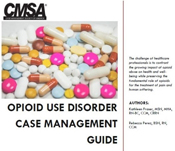 CMSA’s Opioid Use Disorder Case Management Guide was developed in collaboration with Reinsurance Group of America’s ROSE program and authored by CMSA’s Executive Director, Kathleen Fraser, CMSA Program Director, Rebecca Perez, and Senior RGA ROSE Consultant, Melinda Baxter.
The abuse of opioids is a global problem that affects the health, social, and economic welfare of societies.
The challenge of healthcare professionals is to confront the growing impact of opioid abuse on health and well-being while preserving the fundamental role of opioids for the treatment of pain and human suffering.
This guide assists case managers and other healthcare professionals in the assessment, care planning process, and intervention development to address opioid use disorder. This digital guide is one of the many benefits to CMSA members!
|
 CMSA is pleased to announce a partnership with Bruce Berger, PhD, of Berger Consulting, LLC to bring you comMIt: Comprehensive Motivational Interviewing Training for Health Care Professionals at a discounted price. This 8-hour online program is centered around motivational interviewing, which is an evidence-based effective method for improving adherence to health behaviors. It was developed specifically for patients who are either ambivalent or resistant to change regarding these health behaviors.
CMSA has really listened to your requests for a practical motivational interviewing course targeted at healthcare professionals and their needs. We are thrilled to bring you an accredited course developed by the foremost authorities of MI in healthcare, Drs. Bruce Berger and William Villaume.
There are a limited number of seats for this program, so you'll want to act soon! Click below to explore more information and register.
|


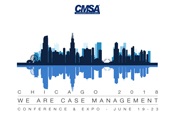 All good things must come to an end, including the best pricing we’ll offer for CMSA’s Annual Conference & Expo. At the end of the month, March 31, our early bird pricing will end, so now is the chance to save big! Register today and you can still save money on registration cost and participate in the installment payment plan.
Plus, don’t forget you’ll receive a complimentary 1-year membership to CMSA with every paid conference registration! The month will be over before you know it. What are you waiting for?
|

Developed by Pfizer, ArchiTools offers a comprehensive grouping of information and resources such as interactive training modules, actionable tools that members can download and use with patients, annotated articles, and a robust set of relevant external links specifically for case managers.
Members: Access your new benefit today! Enter casear71 in the account code field.
|
 Exciting news for our members seeking Social Work CEs: We now have 5 CE hours in our Educational Resource Library! CMSA is an approved provider for social work continuing education by the Association of Social Work Boards (ASWB). Keep checking back as we will continue to add hours.
Also, we now have a category in our ERL for CCM Ethics hours – currently we have 6 hours. Read more and begin your online courses any time at the link below.
|
 Earlier this year, we announced a partnership with CCMC to continue advancing professional case managers in their career paths. Under the agreement, CMSA members receive a 20 percent discount when applying for the CCM, as well as upon renewal. Those who hold the CCM certification receive a 20 percent discount for CMSA membership.
If you have questions about how to take advantage of your new member benefit, please contact CMSA Client Services at cmsa@cmsa.org or 501-225-2229.
|
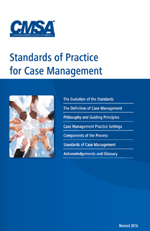
Download CMSA's Standards of Practice for Case Management, 2016 revision, which provides practice guidelines for the case management industry and its diverse stakeholders.The impetus for the 2016 revision of the Standards is the need to emphasize the professional nature of the practice and role of the case manager.
The 2016 Standards contain information about case management including an updated definition, practice settings, roles and responsibilities, case management process, philosophy and guiding principles, as well as the standards and how they are demonstrated.
Download Your Copy
|

Pat Stricker, RN, M Ed SVP, Clinical Services, TCS Healthcare Technologies
Are you aware that virtual reality (VR) has been used as a clinical tool in healthcare since the early 1990s, or are you like me – thinking VR was a new, emerging technology that had just recently been developed? Do you consider it an entertainment/gaming device or an educational and clinical tool used in a large variety of clinical situations?
In reviewing the trends for 2018, I began to realize that VR is being used as a very effective, credible educational and clinical tool. I have to admit I was surprised at the depth and breadth of its use in healthcare over the past 25 years and its expected expansion in scope for the future, given the fact that the technology has become more advanced, less costly and easier to mass produce.
So it looks like virtual reality is here to stay! But what exactly is VR?
|

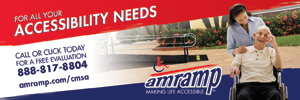

by Mary McLaughlin-Davis, DNP, ACNS-BC, NEA-BC, CCM
I thought that most health professionals, and certainly case managers, were beyond segregating physical, mental and behavioral health. However, I was mistaken. As recently as last week, I overheard a hospital case manager tell her manager she was not trained in mental health, and therefore she did not want to be assigned to a patient who had fallen at a group home and suffered from paranoid schizophrenia, diabetes and hemiparesis from a previous stroke. It was then that I realized that breaking the paradigm of a divided mental health and physical health case management approach had been a process for me — not one in line with all case management practices. I was fortunate to be immersed in the Case Management Society of America (CMSA) Integrated Case Management (ICM) Training Program, which hastened my own shift to the integrated case management paradigm.
The emerging Population Health Model focuses on managing the disease states present in a designated population. This model requires efficiencies and patient-centric quality outcomes in order to be successful. The Population Health Model, in any of its settings, will not demonstrate these outcomes without a solid case management program. Case managers in all settings, from workers’ compensation to acute care, must be trained in ICM. They must be confident in their ability to manage all aspects of a patient’s presenting diagnosis and comorbid conditions, and to manage them simultaneously. These aspects include the medical and cognitive/behavioral diagnosis with the social determinants of health.
|
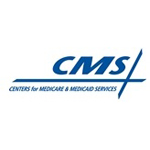 CMS launches "Blue Button 2.0" tool, calls on all health insurers to make data available to patients
On March 6, Centers for Medicare & Medicaid Services (CMS) Administrator Seema Verma announced a new Trump Administration initiative – MyHealthEData – to empower patients by giving them control of their healthcare data, and allowing it to follow them through their healthcare journey.
Last year President Trump issued an Executive Order to Promote Healthcare Choice and Competition Across the United States. In response the Administration is moving towards a system in which patients have control of their data and can take it with them from doctor to doctor, or to their other healthcare providers.
The government-wide MyHealthEData initiative is led by the White House Office of American Innovation with participation from the Department of Health and Human Services (HHS) – and its Centers for Medicare & Medicaid Services (CMS), Office of the National Coordinator for Health Information Technology (ONC), and National Institutes of Health (NIH) – as well as the Department of Veterans Affairs (VA). The initiative is designed to empower patients around a common aim - giving every American control of their medical data. MyHealthEData will help to break down the barriers that prevent patients from having electronic access and true control of their own health records from the device or application of their choice. Patients will be able to choose the provider that best meets their needs and then give that provider secure access to their data, leading to greater competition and reducing costs.
|
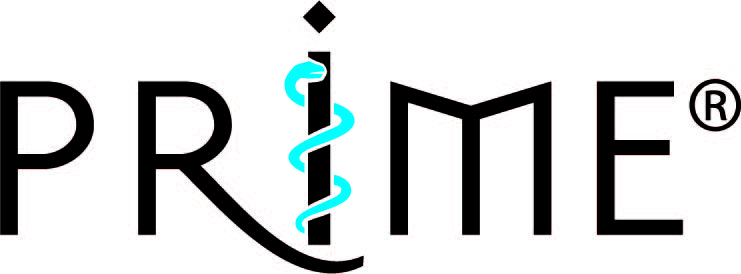 Around 800,000 people experience strokes in the US every year, and nearly 25% are recurrent events. A major risk factor for ischemic stroke is atrial fibrillation (AF). For people with AF, stroke risk can be reduced by 60-70% with anticoagulant medication. However, the recent PROSPER study revealed that 84% of more than 94,000 patients with AF who were admitted to hospitals for acute ischemic stroke had not been receiving guideline-directed therapeutic anticoagulation.
PCORI's dynamic video activity is designed to support healthcare professionals, patients and caregivers, and other stakeholders in applying key findings from the PROSPER studies to improve outcomes for patients with AF and stroke risk. The expert panel features a lead researcher and a patient-investigator on the PROSPER team; clinicians who represent the interests of peers in primary care, cardiology, and pharmacy; and a nurse case manager, who addresses key issues in care coordination for ischemic stroke prevention and recovery. Five short companion videos feature focused discussions on specific applications of the unprecedented insights into anticoagulant medication use and patient-centered perspectives revealed through the PROSPER studies.
To learn more and complete the activity, click below.
|
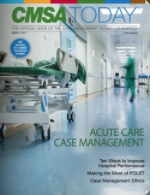 CMSA Today™—the official magazine of the Case Management Society of America—is the magazine for case managers. We are committed to providing case management knowledge, perspectives and news to case managers in all sectors of the profession. To facilitate that mission, we accept and consider: CMSA Today™—the official magazine of the Case Management Society of America—is the magazine for case managers. We are committed to providing case management knowledge, perspectives and news to case managers in all sectors of the profession. To facilitate that mission, we accept and consider:
- Original articles written by case managers of all healthcare backgrounds;
- Expertly prepared articles from professional writers—whether medical
writers or experienced generalists—on case management topics;
- Feature articles, column material, and news about case management
trends and issues, as well as about CMSA chapters and their activities;
- and personal, member-generated items considered nontraditional for a
professional-association publication as poems, remembrances and similar
sorts of content.
Consider sharing your knowledge by writing and submitting an article! Click below to learn more.
Learn More
|
 CMSA is on Instagram, and in 2018 we're celebrating case managers with a new photo every day! Send us your photo to post or tag your Instagram photo with #365daysofcm (make sure your profile is public so we can see it)!
Follow along @cmsanational; we'll see you there!
|
|
| |
|

